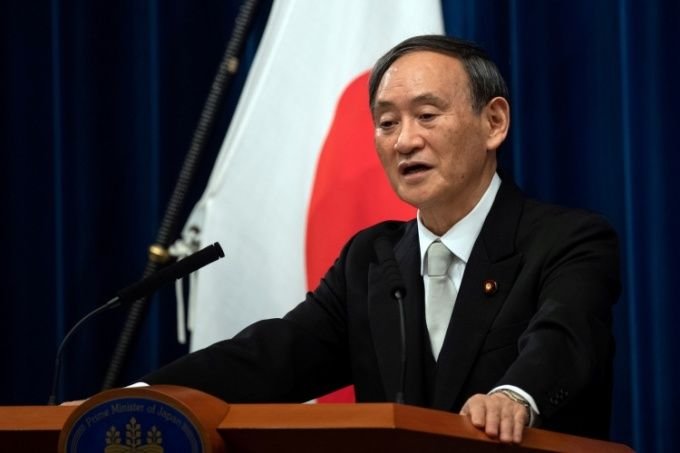
Two key points that the new Japanese Prime Minister can cooperate with Vietnam
On September 16, Mr. Yoshihide Suga became the new Prime Minister of Japan after a vote in parliament.
Professor Christina Davis, a researcher on Japan, Harvard University, USA, assessed that new Prime Minister Suga can promote two spearheads of cooperation with Vietnam.
First, Japan will increase new investment in Vietnam to diversify the supply chain, due to the impact of Covid-19.
Davis said Japan recently released information showing its desire to move investment out of China to reduce dependence on this market.
On September 7, Vietnamese Prime Minister Nguyen Xuan Phuc affirmed that the Vietnamese market is large enough for ambitious business investment plans, restructuring strategies, and supply chain shifts of Japanese investors.
Expert Davis noted that Japan can also increase cooperation with Vietnam in resuming travel, which was heavily affected by Covid-19.
Mr. Suga spoke at a press conference after being confirmed as the new Japanese prime minister on September 16 in Tokyo.
Second, Japan can increase its partnership with Vietnam in supporting open seas in the region.
According to Davis, Japan is showing leadership in promoting open seas and an open economy.
`With Vietnam, Prime Minister Suga will continue to support the importance of freedom of navigation in the East Sea, upholding international law,` Davis said, adding that Japan will promote cooperation with countries of mutual benefit.
In Japan’s Indo-Pacific Strategy, the country determines the need to popularize and shape basic values such as freedom of navigation, respect for the law, and promoting activities for peace and stability.
Associate Professor Yoshikazu Kato, Asia Global Institute at the University of Hong Kong, also said that Mr. Suga’s administration will certainly maintain its commitment to the Indo-Pacific strategy.
`Among Japan’s partners, Vietnam actively demonstrates its commitment to rules and values-based cooperation, in the face of serious geopolitical challenges created by China,` Kato said.
According to Dr. Sheila Smith, Japan expert, Council on Foreign Relations (CFR), US, the Indo-Pacific vision will remain Japan’s priority when Prime Minister Suga is in power.
Dr. Stephen Nagy, International Christian University, Japan, said that the Indo-Pacific Vision is part of Tokyo’s long-term strategy to make a mark in this region.
From the perspective of a Japanese expert, Dr. Mieko Nakabayashi, School of Social Sciences, Waseda University, said that Mr. Suga’s views on China may be different from Mr. Abe’s and similar to Toshihiro Nikai, Secretary General of the Democratic Party.
`We need to monitor the new administration’s activities and actual policy decisions to understand more about Suga’s position on China,` Nakabayashi said.
Expressing his belief that Prime Minister Suga is `not a copy of Abe`, Dr. Smith said that the two have similarities in their perception of Japan’s priorities, in policies aimed at economic growth and orientation.
`It will be interesting to see how these skills of Mr. Suga will be transformed in his role as prime minister,` Smith said.
Mr. Suga was once the `main driving force` that helped operate Mr. Abe’s administration, so he is not Abe’s `shadow,` according to Nakabayashi.
Dr. Nagy considers Suga to be Abe’s `key partner` in both domestic and foreign policy.
Associate Professor Kato commented that Suga will strengthen the Abenomics Strategy by focusing on fiscal policies to cope with the negative impacts of Covid-19.
Suga comes from the countryside, has a different background than Abe.
Suga’s difficulty right now is that Japan is facing the challenges of the pandemic and the world economic decline.
While Japan has close economic ties with China, Tokyo is also concerned about Beijing’s dominant role in the region.
`Japan can become a bridge between China and the US, to demonstrate its intermediary role,` Davis said.
Vietnamese-English


